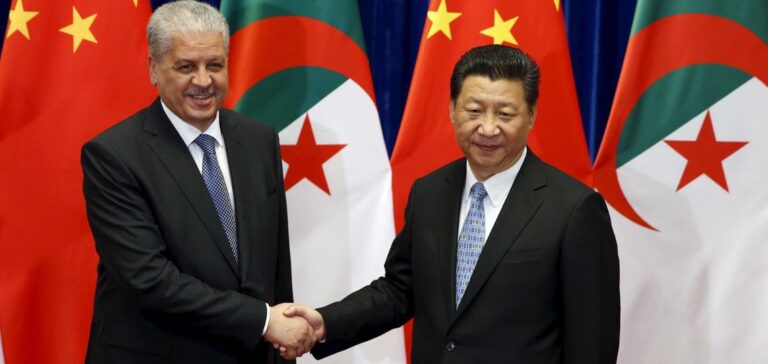Chinese President Xi Jinping on Tuesday called for closer ties with Algeria, during a meeting in Beijing with his Algerian counterpart Abdelmadjid Tebboune, at a time when Beijing is seeking to diversify its energy supplies.
Algeria aspires to join the BRICS with China’s support.
Mr. Tebboune began a five-day state visit to China on Monday, his first since assuming the presidency at the end of 2019.
“China is ready to work with Algeria to strengthen strategic communications, deepen exchanges and cooperation, and ensure the steady, long-term development of the China-Algeria comprehensive strategic partnership,” President Xi told Mr. Tebboune during their meeting at the People’s Palace in Beijing.
Algeria, Africa’s biggest exporter of natural gas, is seeking to join the BRICS group, which includes Russia and China, and presents itself as a counterweight to the dominant Western economic powers. Mr. Tebboune thanked Xi Jinping for China’s support for Algeria’s bid to join the BRICS, which in addition to Russia and China include India, South Africa and Brazil, as well as the Shanghai Cooperation Organization.
“China is our most important friend,” said the Algerian president.
China invests in Algeria’s energy sector, strengthening cooperation between the two countries.
China has made significant investments in Algeria in the energy sector, including a contract between the Chinese oil and chemicals group Sinopec and Algeria’s Sonatrach. Sonatrach executives visited China in May to discuss energy cooperation and sign a gas delivery contract with their Chinese partners, according to Algérie Presse Service.
Membership of the BRICS group is an important foreign policy objective for Mr. Tebboune. In 2022, the Algerian president assured us that his country met “a large part” of the economic criteria for joining the group.
Mr. Tebboune took part in the virtual BRICS summit at the end of June, when Russian President Vladimir Putin called on the group’s leaders to cooperate in the face of “selfish actions” by the West.
The 77-year-old Algerian president visited Russia in June, during which agreements were signed to deepen the “strategic partnership” between the two countries. Algeria, a gas exporting power, has maintained good relations with both its European neighbors and Russia, despite the invasion of Ukraine by Russian forces.






















